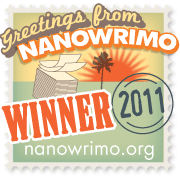Most of us writers are familiar with the term ‘pantsing’. It refers to writing a novel without the benefit of an outline, or even a plan. At best, our muses have given us a glimmer of a story idea. We begin writing, and we let the words flow straight from our imaginations to the screen, or paper. Writers will often find themselves in debates over the wisdom of pantsing. Some swear by the uninterrupted muse, while others insist pantsing is a waste of valuable time.
I have always pantsed my writing. As much of a planner I am in my life, I am the complete opposite in my imagination. Because I love the act of writing so much, I don’t want to ruin the experience by sterilizing my passion.
But what happens when a pantser finishes her first draft and is ready to tackle the story again. Does she pants the second draft, too? How does a writer whose natural affinity is to let words pour unhindered from her mind change tactics and become a structured planner? Is it even possible?
With my first book, I pantsed every round of rewrites. I never put the book away to rest. I didn’t assess the story as a whole before I started tinkering a little here, a little there. I pounced on anything that didn’t look right, instead of flagging it and waiting to make changes until I’d gone through the whole story. Changing elements with no concern as to whether the book would teeter in response. I wrote and rewrote the book as though I were following a Labyrinth and not a plotted course.
After a while I realized that this book was taking me far too long to complete. I was constantly working on it. I remember asking myself why are revisions so complicated?
Revision is, in essence, rewriting. If pantsing works with writing, then why doesn’t pantsing work with rewriting?
I think revision requires a clinical, objective, hard-assed approach, while writing needs the creative, open, fertile field of imagination. If we finish our rough draft and begin the next draft with our story idea still flowing, still unraveling—then I don’t really call that revising the story. I think that we’re still writing it. And sometimes that happens. Sometimes, we’ll ‘finish’ the first draft and feel the need to continue writing it. So we tinker with random scenes or characters. This is not revising. This is more writing.
I think revision can only happen after the author has finalized her decisions regarding the structure of the story—beginning, middle, end. If we’re writing our fifth draft and we’re still unsure how everything will come together then I’m not convinced we’re revising. I am tempted to say we’re still writing.
The revision stage needs to be planned. I don’t think it can be pantsed. I don’t think revisions can be done successfully in the midst of creative writing. Writers cannot be sentimental or ambivalent in the revision stage. We can’t ‘wing it’ in the revision stage. Writers need to make hard decisions in the revision stage, and we need to know how one scene will affect another scene. With revision we have to slay our Little Darlings. With revision we have to heed word count. With revision we need to think more like a reader, and less like a writer.
How about you? Did you ever think you were revising your book when, in fact, you were still writing it?



